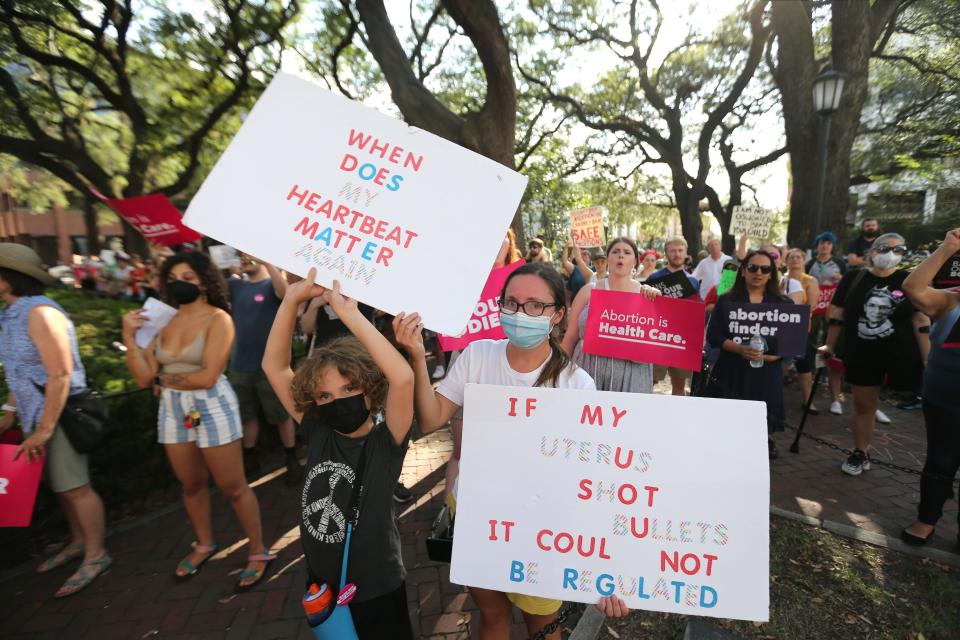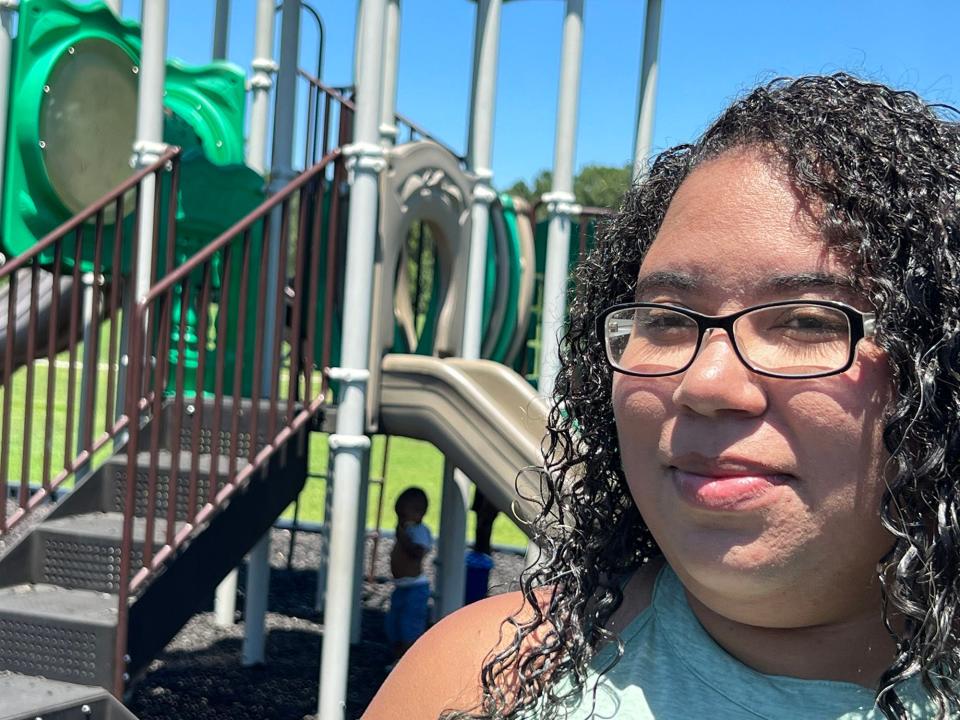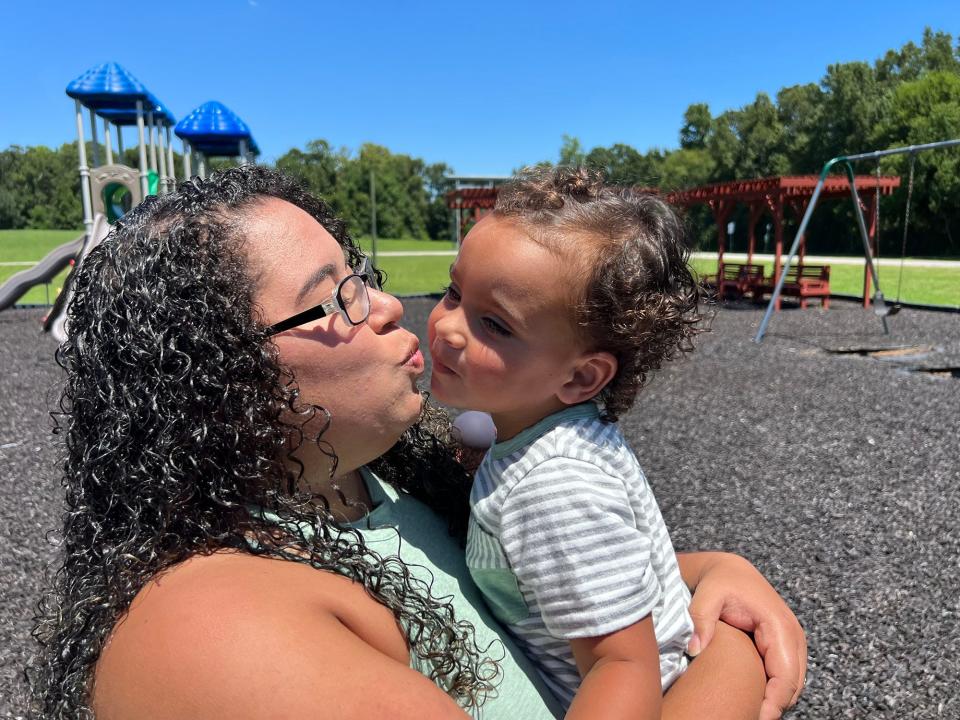Georgia's six-week abortion ban could impact medical treatment for women who miscarry
The landscape for abortion access in Georgia is continuously evolving.
With the new sweep of anti-abortion legislation, women who miscarry are faced with the possibility of having to answer to a legal construct to prove they did nothing to induce the miscarriage while coping with the loss.
After the Supreme Court's decision to overturn Roe v. Wade, The 11th Circuit Court of Appeals lifted an injunction on House Bill 481, better known as Georgia's fetal heartbeat law. The bill bans most abortions in Georgia after six weeks, before most people know they are pregnant, and took effect immediately after the court issued an immediate stay.
For subscribers: Georgia's abortion law does little to improve state's high maternal mortality rates
'Heartbeat' law in effect: With injunction reversed, court says 'heartbeat' abortion law takes immediate effect
'It's no one's business': Savannah women tell their abortion stories in wake of Supreme Court overturning Roe v. Wade

The bill exempts "removing a dead unborn child caused by spontaneous abortion," also known as a miscarriage, or "removing an ectopic pregnancy," which is a pregnancy in which the fetus develops outside the uterus.
However, it's been reported that some legal experts believe women could be investigated if there are questions about whether they miscarried or had an illegal abortion.
'Spontaneous abortions'
Hinesville resident Tatiana Reams, 29, had her first miscarriage in 2016.
By 2018, she'd had two more miscarriages and one stillborn baby. Two of the miscarriages had to be helped along by medication and her stillbirth had to be induced at the risk of her getting sick.

She said the experiences have taken a toll on her physically and emotionally.
"It was sad ... it was hard emotionally and physically," Reams said. "All of my pregnancies were very wanted. I just I have infertility struggles."
Miscarriages are defined as the spontaneous loss of a woman's pregnancy before the 20th week and symptons can include vaginal bleeding or spotting and abdominal cramping. Some women even experience missed miscarriages, which is when a baby has died in the womb but the mother hasn't had any symptoms.
However, miscarriages are also referred to as "spontaneous abortions" and local doula Javon Sage suspects the term is used to avoid association with induced abortions.
"The medical term for miscarriages is spontaneous abortions, so that can be jarring for some folks. I just believe miscarriage sounds nicer," Sage said. "It sounds more gentle."
Abortion pill debate: Lawmakers, advocates divided on Georgia bill that would ban the mailing of abortion pills
Post-Roe Georgia: Shrinking abortion access in a post-Roe society will harm the most marginalized in Georgia
Medically speaking, miscarriages and abortions are treated very similarly. A common treatment for miscarriages is taking Mifepristone, also known as the "abortion pill," to miscarry at home. This means laws that restrict abortion or that outlaw certain medications or procedures used in abortion also have the potential to limit treatment for women experiencing a miscarriage.

Another treatment is an in-office suction procedure in which the doctor removes the pregnancy tissue, same as they would for a surgical abortion.
“I want people to also remember that it can be these things, too. In a medical sense, there's no verbiage for miscarriage. If you go to the hospital because you're pregnant and you're bleeding, they mark it down as a threatened abortion, because that's how they code things,” Reams explained.
Criminal implications and hesitation
According to the National Advocates for Pregnant Women, about 1,300 women have been arrested or charged in the U.S. from 2006 to 2020 for their actions during pregnancy.
Following the reversal of Roe v. Wade, there have been reports of patients in the U.S. experiencing hurdles in receiving standard surgical procedures or medication for miscarriage care. The increased risk of criminal penalties means physicians may turn women away who seek treatment for a miscarriage.
"A lot of people don't find out they're pregnant until after six weeks, and there's not a lot that you can do," Sage said. "So, if you don't find out until say like eight weeks and if doctors are afraid to intervene, even if the pregnancy isn't viable, I have a feeling there's going to be a lot more miscarriages that are going to have to do the wait-it-out approach."

As a military spouse, the possible implications of experiencing a miscarriage worries Reams.
“It's very scary, especially because my husband is in the military. So, we move every few years and we have no control over where we go,” Reams said, noting that her miscarriages and stillbirth happened in Maryland. “If we end up in a state that has way stricter laws, that makes me hesitate as even trying to get pregnant again.”
Reams currently has a 2-year-old son who she said would have been left without a mother if she didn't receive miscarriage care.
“I want people to remember that it's not what people think, that people are just getting pregnant and going, ‘Oh, no, I don't want this.’ … Pregnancy is hard on a woman's body. And not everybody wants to go through that. And that's their right.”
Laura Nwogu is the quality of life reporter for Savannah Morning News. Contact her at LNwogu@gannett.com. Twitter: @lauranwogu_
This article originally appeared on Savannah Morning News: Georgia abortion law means women who miscarry may face hurdles

